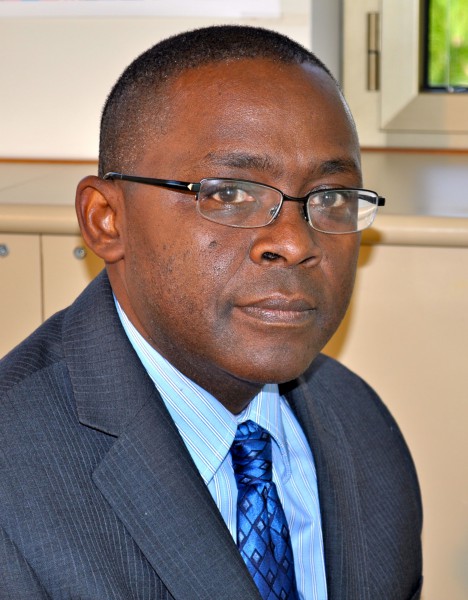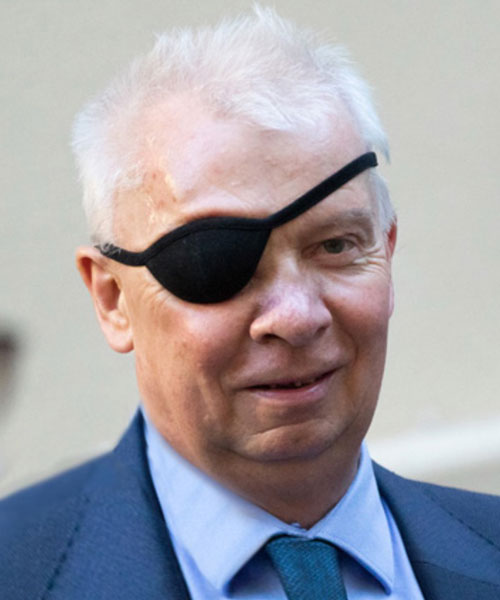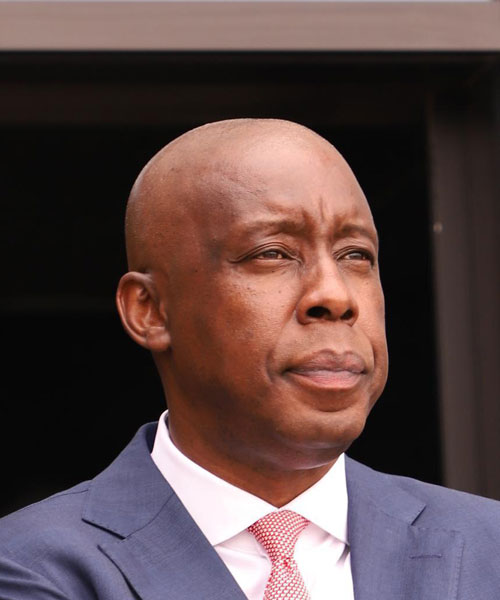
Trieste/Gebze - Scientific skills and personal engagement alone are not enough to develop a career in science, especially in developing countries. Assets to build high-quality education and achieve meaningful results include learning from  experienced researchers to guide scientific growth and creating a collaborative network for long-term support and cooperation.
experienced researchers to guide scientific growth and creating a collaborative network for long-term support and cooperation.
These and other resources are embedded in a far-reaching collaboration programme endorsed by the UN Technology Bank for the Least Developed Countries, The World Academy of Sciences (TWAS), and the International Centre for Genetic Engineering and Biotechnology (ICGEB).
The programme agreement called PACTs (ProgrAmme of CollaboraTions with LDCs) offers early-career scientists from the 46 Least Developed Countries (LDCs), who are aged 45 or under, exchange visits of up to 6-months at the ICGEB laboratories in Trieste (Italy), New Delhi (India) and Cape Town (South Africa). Scientists will be working in the fields of biomedicine, biotechnology and agriculture. It will also include a third scheme to provide training in biotechnology policy and regulatory science by ICGEB experts.
"TWAS is extremely eager to initiate this new programme solely dedicated to LDCs, with research in biotech holding centre stage," said TWAS Executive Director Romain Murenzi. "We believe that the project and the partnership with UN Technology Bank and ICGEB can be extremely beneficial to multiple areas of development."
The least developed countries are very low-income countries with vulnerable economies and severe challenges that impede sustainable development, whose population confront daily with hardship and long-term impediments to economic, social and scientific growth. A major goal of PACTs would be changing this trend towards sustainable development.
Lawrence Banks, ICGEB Director-General affirms: “ICGEB is very excited about this collaboration with UN Technology Bank and TWAS where we will be working together to bring research and training in biotechnology to LDCs. This will ensure that the fruits of modern biotechnology can reach countries where it is most needed and thereby directly contribute to achieving the Sustainable Development Goals.”
“The collaboration with ICGEB and TWAS presents an opportunity to enhance the scientific competencies of at least 40 scientists across the LDCs in biotechnology through a combination of specialist training in relevant soft skills and direct research funding. This will increase LDC capacities in biotechnology policy and regulatory requirements,” said Mr Joshua Setipa, Managing Director of the UN Technology Bank. “The current COVID-19 pandemic has demonstrated the need for countries to strengthen their biotechnology capabilities and contribute to the strengthening of health systems and towards achieving Sustainable Development Goals.”
The PACTs agreement will last five years: after the first three years of fellow selection and awards, the project will continue for other two years with the monitoring and final evaluation phase, during which Fellows may also apply for ICGEB Early Return Career Grants to obtain seed funding for their research upon their return to their home countries.
The programme follows a new modality of funding called UN-UN Interagency Agreement, whereby management costs are reduced compared to other similar initiatives.
PACTs meets the mission shared by the three Partners: to strengthen science and technology in developing countries; to promote networking among researchers and research institutions, and to help nations identify and use appropriate technologies to transform their economies and improve livelihoods.
About the Partners
The World Academy of Sciences (TWAS)
The World Academy of Sciences for the advancement of science in developing countries, is a merit-based science academy with more than 1,270+ internationally renowned Fellows, including 14 Nobel Laureates, coming from more than 100+ countries. It was established in 1983 in Trieste, Italy, and today it is part of and administered by the United Nations Educational, Scientific and Cultural Organization (UNESCO). It has currently the world’s largest South-South PhD and post-doctoral research fellowship programme, with more than 260 fellowships offered per year. Through its Research Grants programme, TWAS supports individual researchers and groups, offering also collaborative grants for projects in areas related to sustainability and the SDGs. Each year the Academy distributes almost one million USD to equip laboratories and support publications. TWAS has a 30+ years track record in capacity building programmes in developing countries; a sound experience in sustainable development in developing countries; and an international repute in the strategic use of science diplomacy. Its network of almost 300 Institutes and Centres of excellence worldwide is an asset for the project.
International Centre for Genetic Engineering and Biotechnology (ICGEB)
The International Centre for Genetic Engineering and Biotechnology is an intergovernmental organisation with the mandate of fostering research, capacity building and technology transfer in life sciences, with the ultimate purpose of promoting sustainable global development (www.icgeb.org). Established in 1983 as a special project of UNIDO, the ICGEB is an independent intergovernmental organisation since 1994 with HQs and Component laboratories in Trieste (Italy) and two other Components in New Delhi (India) and Cape Town (South Africa). It counts an international scientific network across 65 Member States including Regional Research Centres, Affiliated Centres, and 20 signatory countries. Research and training programmes are reviewed by the Scientific Council, which includes Nobel laureates, who assist the Director-General on all substantive, scientific and technical matters concerning the activities of the Centre. ICGEB's training experience and research expertise make the Institute a global leader in the biotechnology field. ICGEB will provide training from senior staff scientists, laboratory facilities and an international network of accomplished researchers.
United Nations Technology Bank for Least Developed Countries
The United Nations Technology Bank for Least Developed Countries is a global organization dedicated to enhancing the contribution of science, technology and innovation for sustainable development in the world’s least developed countries. The UN Technology Bank became operational in 2018 and serves the 46 least developed countries and countries in transition for up to five years after their graduation from the category. Headquartered in Gebze, Turkey, it supports national and regional technological efforts in the least developed countries, reinforcing partnerships across sectors and helping nations identify and use appropriate technologies to transform their economies and improve livelihoods.
UN Technology Bank will promote the equitable distribution of the programme in key under-represented countries and its representatives will participate in the applications' evaluation and all the key milestones of the project.
The three axes of the programme
PACTs will facilitate international exchange and mobility of early-career scientists and their active participation in the scientific global agenda, which is now more than ever centred on the UN Sustainable Development Goals (SDGs).
PACTs offers three strategic axes of intervention:
1. a South-North Programme: early-career researchers coming from LDCs visit ICGEB's laboratories in Trieste for skill-building visits of up to six months;
2. a South-South Programme: scientists from LDCs visit ICGEB laboratories centres in the South (i.e. India and South Africa);
3. a North-South Programme aimed at strengthening biotechnology policies and regulatory capacities of LDCs with qualified personnel from ICGEB Italy conducting tailored workshops on site.
PACTs will also organize workshops on biotechnology policy and regulatory science primarily in sub-Saharan Africa, to provide scientists with skills that are difficult to acquire during the university curricula, granting LDCs more weight at the international level, through proactive participation in the political global arena.
The programme's structure aligns with many of the SDGs, in particular: SDG4, ensure inclusive and equitable quality education, SDG10 reducing inequalities, as well as SDG17, forging partnerships.
Expected outcomes for scientists
During the six-month stay - the minimum time needed to acquire new skills - researchers will learn new laboratory techniques, will receive training in the development and management of research projects, grant writing, teaching and knowledge transfer, and other scientific soft skills that are normally not included in university curricula, but which are relevant for a career in S&T.
Fellows will also learn how to attract research funding, the basic principles ruling Intellectual Property issues and how to spot predatory journals. Strategic benefits will also come from establishing long-lasting international cooperation, which will be an important legacy to bring back home once the visit is over.
Immersion in an international scientific environment will be instrumental for "out of the box" thinking and to gain a wider perspective on global themes such as the SDGs themselves.
Expected outcomes for LDCs
This ambitious TWAS-ICGEB-UNTBLDC joint programme offers LDCs the chance to have an impact on their social and economical growth through a tremendous transformational power. LDCs are countries that show deep gaps in human resource weakness, very low income (a GNI per capita of less than US$ 1,025) and severe economic and environmental vulnerability.
Also, poor governance, gender inequalities and weak links between basic research and technological applications worsen the situation.
PACTs may provide the turning point to reverse many of the detrimental LDC conditions. In particular:
• strengthen the synergy between basic research and industry;
• help contain brain drain;
• enhance biotechnology policies to grant countries more participation in global policies;
• build better conditions for higher education programmes;
• start a virtuous knowledge-transfer process from newly-accomplished scientists towards new generation scientists.
PACTs at a glance
Mission: to strengthen science and technology in developing countries to help them face challenges and to grow according to sustainable development
Partners: UNTBLDC - TWAS - ICGEB
Project Duration: first 3 years: Fellows' selection and awarding; last 2 years: monitoring and evaluation
Funds: USD1.9 Million
Target: early-career scientists from 46 LDCs
Number of fellowships: 40 equally distributed by gender
Three-Leg Programme: South-North: from LDCs to ICGEB in Trieste // South-South: from LDCs to ICGEB in India and South Africa // North-South: various activities such as workshops on Biotech Policy
Fields: Biomedicine - Biotechnology - Agriculture
5 Macro-areas:
* Infectious Diseases (12 res. groups)
* Non-Communicable Diseases (16 res. groups)
* Medicinal Biotechnology (4 res. groups)
* Industrial Biotechnology (7 res. groups)
* Plant Biology and Biotechnology (8 res. groups)
Number of Laboratories: 47 (20 in Trieste, and 27 in Delhi and Cape Town)

